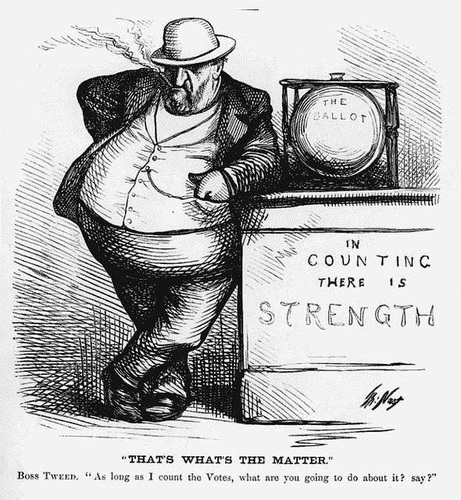
(function(d, s, id) { var js, fjs = d.getElementsByTagName(s)[0]; if (d.getElementById(id)) return; js = d.createElement(s); js.id = id; js.src = “https://connect.facebook.net/en_US/sdk.js#xfbml=1&version=v3.0”; fjs.parentNode.insertBefore(js, fjs); }(document, ‘script’, ‘facebook-jssdk’)); –>
–>
March 19, 2024
Joe Biden, or whoever the Democrat nominee may be, cannot win the 2024 election fairly. While all mainstream networks focus on Trump’s alleged negatives, these pale in comparison to those of Biden and his party. The neocon faction of the Republican Party has claimed this election will be a referendum on Trump. However, the real referendum will be on Joe Biden and the Democrat party as a whole.
‘); googletag.cmd.push(function () { googletag.display(‘div-gpt-ad-1609268089992-0’); }); document.write(”); googletag.cmd.push(function() { googletag.pubads().addEventListener(‘slotRenderEnded’, function(event) { if (event.slot.getSlotElementId() == “div-hre-Americanthinker—New-3028”) { googletag.display(“div-hre-Americanthinker—New-3028”); } }); }); }
There have been a noteworthy number of “referendum” elections throughout history, where a nominee’s fate was determined by their, or their party’s, poor handling of a significant crisis. In fact, there has been one almost every decade since the 1960s.
The most important issue in the 1968 election was the highly unpopular Vietnam War, which coincided with a period of immense civil unrest following the assassinations of Martin Luther King Jr. and presidential candidate Robert F. Kennedy. As a result, President Lyndon B. Johnson, suspecting a voter backlash, became the first president not to seek reelection since 1928. Instead, his Vice President Hubert Humphrey was chosen as the Democrat nominee. But he could not overcome the public’s dissatisfaction and was defeated largely due to Johnson’s handling of those issues.
Richard Nixon was the beneficiary of the Johnson referendum. But just a few years later, it was he who prompted another. Despite the country voting in a landslide for him in 1972, Nixon resigned following the Watergate scandal only two years later. Voters expressed their disgust by voting out Nixon’s VP and Republican nominee Gerald Ford in the 1976 election, with historians citing Ford’s pardon of Nixon as a key reason for his election loss.
‘); googletag.cmd.push(function () { googletag.display(‘div-gpt-ad-1609270365559-0’); }); document.write(”); googletag.cmd.push(function() { googletag.pubads().addEventListener(‘slotRenderEnded’, function(event) { if (event.slot.getSlotElementId() == “div-hre-Americanthinker—New-3035”) { googletag.display(“div-hre-Americanthinker—New-3035”); } }); }); }
President Carter kept with recent tradition by allowing crises to determine his electoral fate. Carter’s presidency was marred by two historically awful issues: Inflation and the Iranian hostage crisis that began exactly one year before the election. As a result, voters arrived at the ballot box with empty wallets and immense anger over Americans being trapped abroad, so the electoral map reverted almost identically to Nixon’s 1972 landslide by 1980.
President George H.W. Bush was able to ride the coattails of the popular Reagan years to a comfortable Electoral College victory in 1988. But he would go on to preside over a recession and a major unemployment problem. These issues even prompted the emergence of third-party candidate businessman named Ross Perot to run for the presidency, which undoubtedly aided in Bush’s defeat, in addition to the already dissatisfied sentiment regarding the economy amongst voters.
By 2008, it was another Bush whose reign led to a blowout election. George W. Bush’s high approval following the September 11th attacks had vanished by 2008, as he, like his father, presided over a recession. This culminated in a stock market crash on September 29th, 2008, just weeks before the election. His decision making regarding the Middle East had also grown increasingly unpopular. Unsurprisingly, his party’s nominee, John McCain, was defeated in an Electoral College landslide.
Each of these presidents and nominees bore the stain of one or two very important crises in the lead-up to the election. These elections resulting in relatively noncompetitive defeats proves one major crisis is all it takes to lose. Joe Biden and the Democrat party have five, all of which the public is squarely placing blame on his administration and party.
 The seemingly biggest issue of concern right now is the border crisis. Immediately upon taking office, Biden halted border wall construction. He then ended Migrant Protection Protocols (MPP), also known as “Remain in Mexico,” which required asylum seekers to remain in Mexico while their immigration cases were being processed. He has also severely handicapped Immigration and Customs Enforcement (ICE) ability to curtail illegal migration. This has resulted in a massive influx of illegal aliens who have wreaked havoc on American society by flooding its cities and committing serious crimes, including murders.
The seemingly biggest issue of concern right now is the border crisis. Immediately upon taking office, Biden halted border wall construction. He then ended Migrant Protection Protocols (MPP), also known as “Remain in Mexico,” which required asylum seekers to remain in Mexico while their immigration cases were being processed. He has also severely handicapped Immigration and Customs Enforcement (ICE) ability to curtail illegal migration. This has resulted in a massive influx of illegal aliens who have wreaked havoc on American society by flooding its cities and committing serious crimes, including murders.
If immigration is the number one issue, the economy is 1B. Jimmy Carter has always been known as the inflation president, but Biden has managed it worse. Carter took office with inflation at 5.2% and saw it eventually rise to a high of 14.8%, a 184% increase. Biden took office with inflation at just 1.4%, and saw it increase to 9.1%, which is a 550% increase. Carter inherited an inflation problem and made it worse. Biden created one. Further, since Biden took office the average monthly mortgage payment has nearly doubled from $1,746 to $3,322, while the median household income has fallen during that time, crushing the American dream of home ownership for countless Americans.
‘); googletag.cmd.push(function () { googletag.display(‘div-gpt-ad-1609268078422-0’); }); document.write(”); googletag.cmd.push(function() { googletag.pubads().addEventListener(‘slotRenderEnded’, function(event) { if (event.slot.getSlotElementId() == “div-hre-Americanthinker—New-3027”) { googletag.display(“div-hre-Americanthinker—New-3027”); } }); }); } if (publir_show_ads) { document.write(“
Biden has further emptied Americans pockets by waging war on the American energy sector. His obsession (or his handler’s obsession) with electric energy replacing “climate change causing” sources of energy has been devastating. Biden restricted oil and gas leasing which harmed domestic energy production, and signed executive orders aimed at ensuring half of all new vehicles sold by 2030 are electric. This attack has resulted in all 50 states setting record highs in gas prices during his tenure, as the average cost of gas has been over three dollars per gallon nationally for over one thousand days now.
Foreign affairs are another factor causing Americans unease. With the election appearing to be a rematch between President Trump and Joe Biden, a rare comparing of apples to (rotten) apples is set to commence. Even partisans acknowledge the increasingly hostile state of global affairs under Biden compared to Trump. Cries that Trump would trigger a nuclear war with North Korea were unwarranted as he instead brokered world peace before handing the keys to Biden. While this was expected to continue, calamity continues to unfold instead. Biden has added salt to this wound by throwing endless amounts of American money at foreign problems while allowing anyone, including those from countries where terror is ensuing, to illegally to come across the border unvetted. This exponentially increases the potential for similar terror as we are seeing abroad to reach the United States.
The final crisis is the weaponization of government. Under Biden, Americans are seeing unprecedented weaponization. Jack Smith was appointed special counsel in the classified documents and January 6th indictments of President Trump, both widely viewed to be politically motivated. Smith was directly appointed by Biden’s Attorney General, Merrick Garland. Fulton County, Georgia, District Attorney Fani Willis met directly with the Biden administration shortly before prosecuting Trump for election interference. In the New York-based hush money case, Matthew Colangelo, who previously targeted Trump during his time in the New York AG’s office, recently left the Biden/Garland DoJ and joined Manhattan DA Alvin Bragg’s team that is targeting Trump. Beyond targeting the preferred candidate of millions of Americans, Biden’s FBI has also targeted traditional Catholics, labeling them as potential violent extremists, in addition to Biden’s White House encouraging major social media platforms to violate the First Amendment by removing posts they disagreed with.
When push comes to shove, voters vote for what is best for their health, safety, and finances over rhetoric or personality. This means only a high-level voter fraud operation will allow this agenda to continue.
As flavor-of-the-month narratives about what will sway voters floods mainstream networks between now and November 5th, recognize that any time a president or party has been widely viewed as responsible for significant crises, they are voted out of power. There are numerous instances of this occurring without any exceptions. Americans overwhelmingly view Biden as the culprit in all these major crises. He cannot legitimately win, nor can anyone his party may replace him with.
Matt Kane graduated from Stony Brook University with a Bachelor’s degree in political science. His work has been posted by President Trump, and published by RealClearPolitics and AMAC. Follow on Truth Social: @MattKane X: @MattKaneUSA
Image: Public Domain
<!–
–>
<!– if(page_width_onload <= 479) { document.write("
“); googletag.cmd.push(function() { googletag.display(‘div-gpt-ad-1345489840937-4’); }); } –> If you experience technical problems, please write to [email protected]
FOLLOW US ON
<!–
–>
<!– _qoptions={ qacct:”p-9bKF-NgTuSFM6″ }; ![]() –> <!—-> <!– var addthis_share = { email_template: “new_template” } –>
–> <!—-> <!– var addthis_share = { email_template: “new_template” } –>





